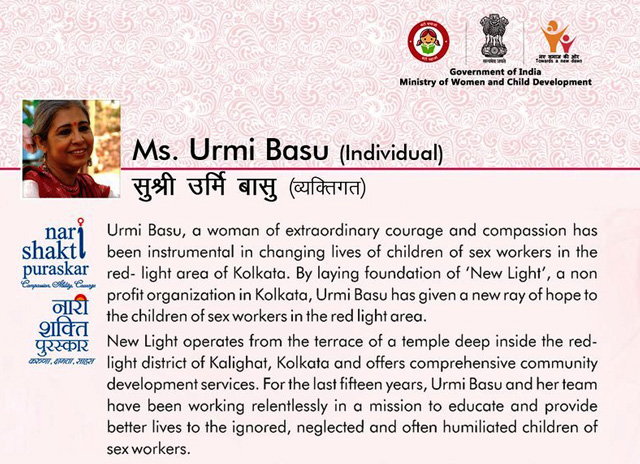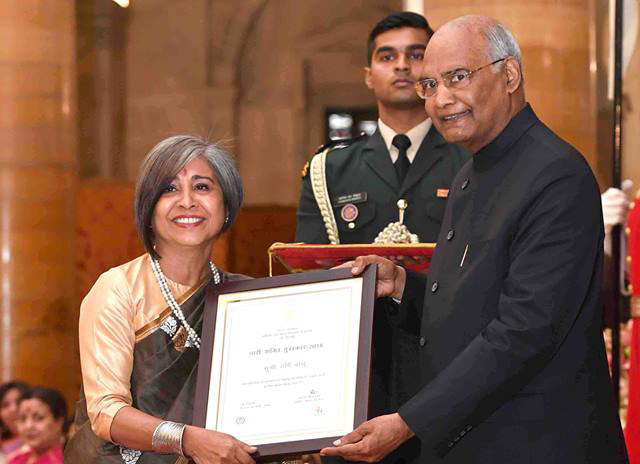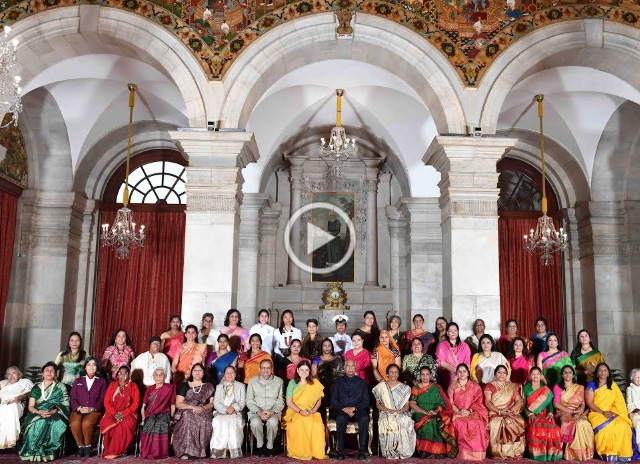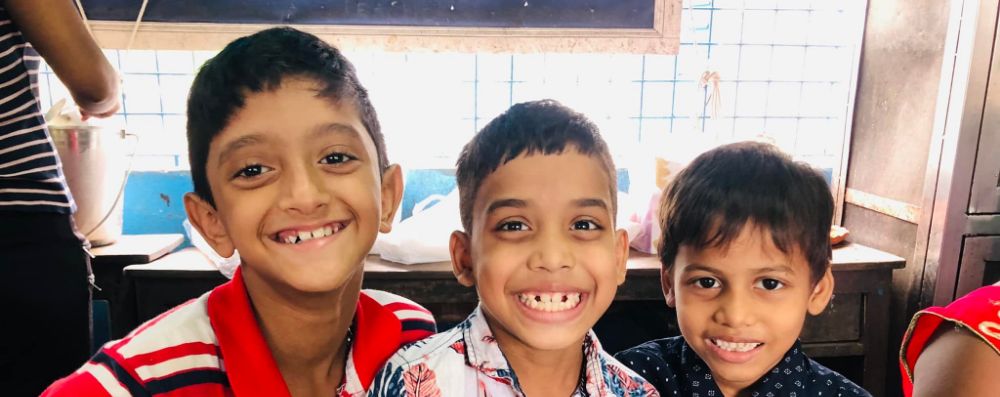
Give them a New Ray of
hope today
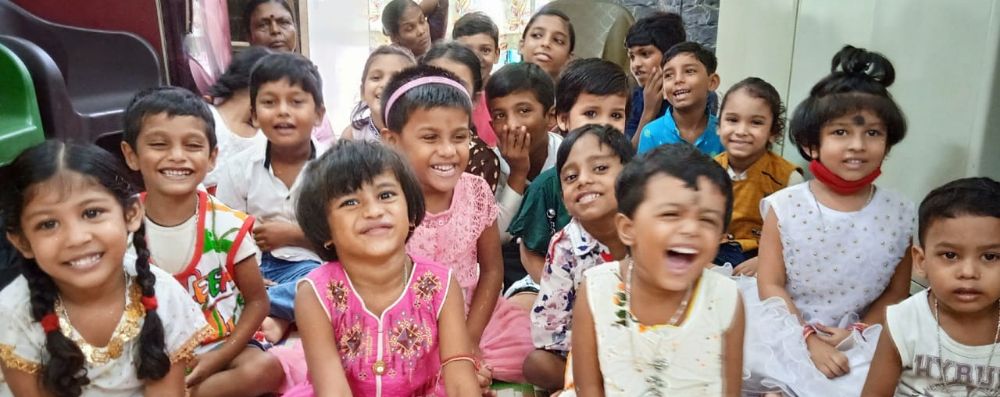
No one has ever become
Poor By Giving
.jpeg)
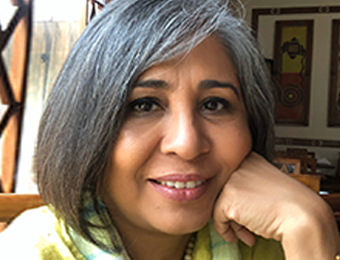
Urmi Basu is a woman of few means, facing staggering need, but her mission is clear. In her work with New Light,
a non profit organization in Kolkata, India, she works to save girls from becoming victims of sexual exploitation
and to improve lives of the children of sex workers. She is dedicated to correcting wrongs, one at a time.
"On a global scale the problem of prostitution is so complex and huge that I would be completely overwhelmed if I
think about it." Urmi says. "I choose to reduce the aperture of my vision and concentrate my energy only on things that I can do."
New Light provides education, healthcare and nutritional support, as well as the opportunity to live free of abuse,
violence and stigma to more than two hundred children of sex workers. In addition to running shelters for children,
the agency founded in 2000 with just $200 also aims to stop the trafficking of young girls into sex trade and to provide
care to those suffering from HIV/AIDS.
It is the grass root nature of New Light that best underscores Urmi's conviction about helping others. Although many
believe money is the only way to help, Urmi knows otherwise. "I have seen people helped just by a word of kindness or
a moment of attention," she says. "In a larger context we can move governments and authority by raising a voice and
taking an active interest in our communities."
Urmi, a trained sociologist, credits her parents with teaching her to cultivate courage and to be a compassionate agent of change. Her father a physician in the Kolkata neighbourhood of Batanagar, was a relentless worker for peace, justice and communal harmony. Neighbours in their small community looked to him as a friend, confidante and source of support. The family led a comfortable middle-class life until 1971, when clashes between communist inspired agrarian Naxalites and the government nearly destroyed everything they had. The arrest of hundreds of youth associated with the Naxalites resulted in unrest and street violence. Murder, arson, kidnapping and gunfights were common....
One March afternoon that year, nine year old Urmi watched as her parents stepped forward to rescue a young man whose life was being threatened by a rival political gang. The rescue was successful, but the family faced the threat of retribution for their actions. Soon after, Urmi's father was stabbed and their home and his clinic were burnt down. "It was a horrific moment for all of us," she says. Community leaders urged Urmi's family to move to a safer place. Her parents however refused and continued to work with young people in the community, teaching tolerance and compassion. Over time, their efforts were rewarded. "When the young people who had attacked our home and knifed my father came to ask for forgiveness," she says, "his kindness and compassion touched and changed their lives forever." Urmi's mother, who passed away in 2009 lived a full life till 81 and continued to command respect and love till her last day. Urmi cites two lessons gained from the experience, both of which guide her work today. First she says, "There exists only one nanosecond between being dead and alive and none of us know when that moment is. So instead of being concerned about what is going to happen, we must open our mind and live life without fear of death. And second "every act of violence can be overcome with tolerance and compassion," she says. "Peace is the greatest power we have." Urmi never hesitates to help those in need, even at the cost of her own safety. "The work I do brings me danger every day, but that is not important," she says. "What matter is not how much we do but that we at least can do something." She concludes by adding, "I would like to be remembered as someone who cared for her fellow beings and always fought for justice.
Ms. Urmi Basu has been a recipient of the Nari Shakti Puraskar, literally meaning "Woman Power Award", India's highest civilian award for recognising the achievements and contributions of women.
